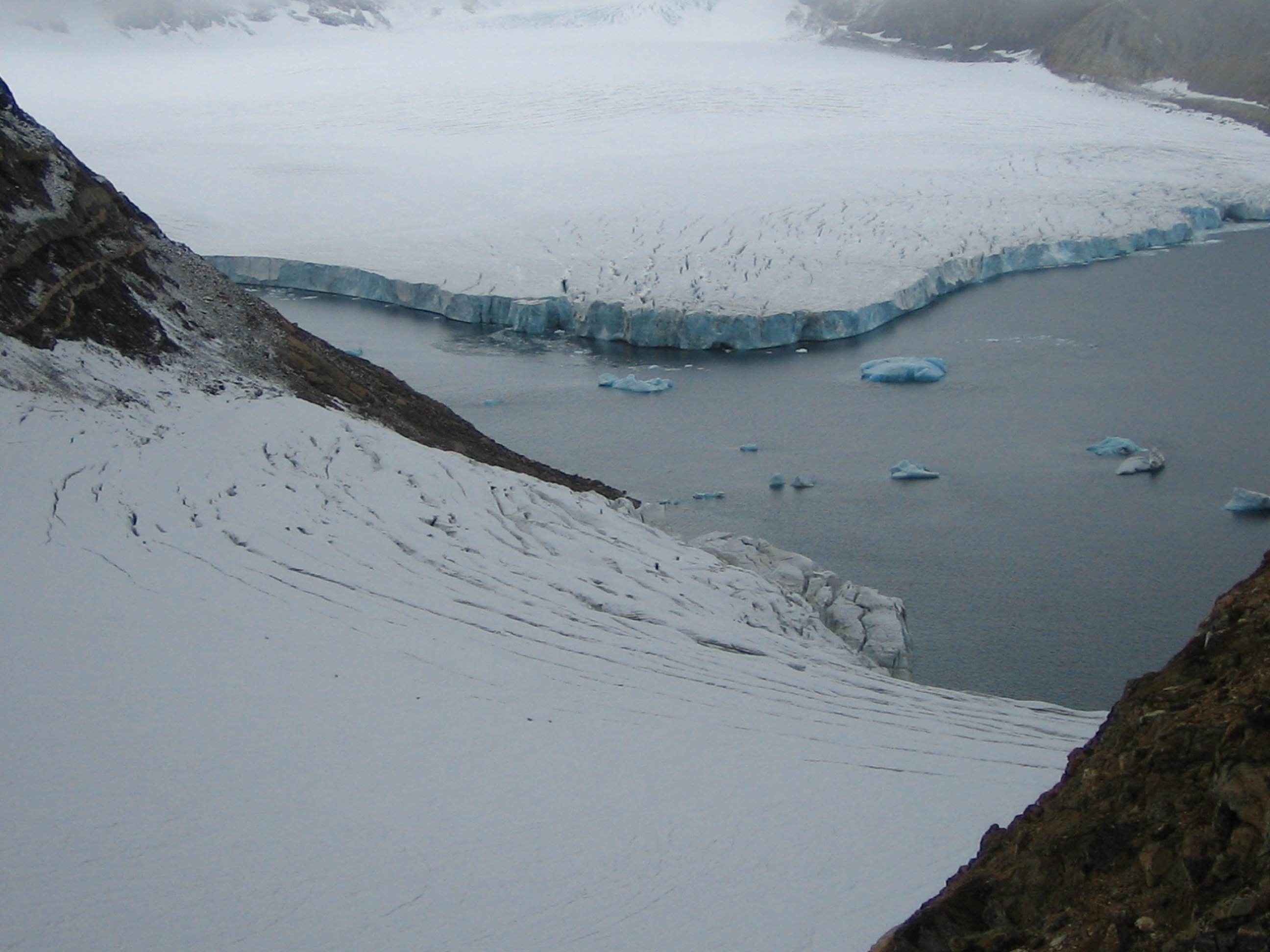Uunartoq Qeqertoq on:
[Wikipedia]
[Google]
[Amazon]
 Uunartoq Qeqertaq ( Greenlandic), ''Warming Island'' in English, is an island off the east central coast of
Uunartoq Qeqertaq ( Greenlandic), ''Warming Island'' in English, is an island off the east central coast of

The Independent: '' An island made by global warming''
24 April 2007
USGS Landsat Project: ''Warming Island''
comparison of satellite pictures between 1985 and 2005 {{Coord, 71, 29, N, 21, 51, W, display=title Islands of Greenland Climate of Greenland New islands Effects of climate change Environmental controversies
Greenland
Greenland ( kl, Kalaallit Nunaat, ; da, Grønland, ) is an island country in North America that is part of the Kingdom of Denmark. It is located between the Arctic and Atlantic oceans, east of the Canadian Arctic Archipelago. Greenland i ...
, north of the Arctic Circle. It became recognised as an island only in September 2005, by US explorer Dennis Schmitt
Dennis Schmitt (born May 23, 1946) is a veteran explorer, adventurer and composer.
Early life
Schmitt grew up in Berkeley, California, the son of mixed German and American parentage. His father was a plumber. Displaying early aptitude with lang ...
. It was attached to the mainland of Liverpool Land
Liverpool Land is a peninsula in eastern Greenland.
Geography
The peninsula is bounded by Scoresby Sund in the south, Carlsberg Fjord in the northwest, '' Kangerterajiva'' (Hurry Inlet) in the southwest, the Greenland Sea in the east, and Jame ...
by glacial ice even in 2002, when the ice shelves began retreating rapidly in this area, so that by 2005 it was no longer attached to the mainland. Members of the scientific community believe this newly discovered island is a direct result of global warming
In common usage, climate change describes global warming—the ongoing increase in global average temperature—and its effects on Earth's climate system. Climate change in a broader sense also includes previous long-term changes to E ...
.
Controversy
Patrick Michaels, a climatologist and prominent global warming denier, created a controversy over the history of Warming Island in a post on his website,World Climate Report
World Climate Report, a newsletter edited by Patrick Michaels, was produced by the Greening Earth Society, a non-profit organization created by the Western Fuels Association.
Early editions were paper based; it was then transferred to a web-onl ...
, in which he argued that the island had been previously uncovered in the 1950s toward the end of a brief warm period in Greenland.
Despite a general lack of suitably detailed maps, Michaels found a map published by Ernst Hofer, a photographer who did aerial surveys of the area in the early 1950s, which showed the Warming Island landmass unconnected to Greenland. Michaels concluded therefore that Warming Island was also a separate island when observed by Hofer in the 1950s, and more broadly that Warming Island is an example of unjustified concern about the future outcomes of global warming.
Dennis Schmitt countered Michaels' theory in an article by New York Times reporter Andy Revkin, contending that Hofer's map is inaccurate. Citing discrepancies such as the absence on Hofer's map of nearby Reynolds Island, he suggested that the discrepant features are consistent with an aerial view of the area when covered with fog, which has often obscured low-lying areas like Reynold's Island and the ice-bridge connecting Warming Island to the Greenlandic mainland. He further observed, "I see by the markings of the 1957 document that it is to be construed as indeed only schematic, that it is explicitly incomplete."
Michaels explained that Hofer included the map in his book "so as to place his pictures and stories in context."
No photographic evidence is available that would resolve the issue.
The island was also part of a 2011 controversy when it was included in the ''Times Atlas of the World
''The Times Atlas of the World'', rebranded ''The Times Atlas of the World: Comprehensive Edition'' in its 11th edition and ''The Times Comprehensive Atlas of the World'' from its 12th edition, is a world atlas currently published by HarperCo ...
'', along with a revised depiction of the Greenland ice sheet that showed a 15% reduction. After being alerted through the media, the U.S. National Snow and Ice Data Center reported that the atlas editors must have used a 2001 map showing only the thickest segment of the ice sheet.

See also
*Effects of global warming
The effects of climate change impact the physical environment, ecosystems and human societies. The environmental effects of climate change are broad and far-reaching. They affect the water cycle, oceans, sea and land ice (glaciers), sea lev ...
*Physical impacts of climate change
The effects of climate change impact the physical environment, ecosystems and human societies. The environmental effects of climate change are broad and far-reaching. They affect the water cycle, oceans, sea and land ice ( glaciers), sea le ...
References
External links
The Independent: '' An island made by global warming''
24 April 2007
USGS Landsat Project: ''Warming Island''
comparison of satellite pictures between 1985 and 2005 {{Coord, 71, 29, N, 21, 51, W, display=title Islands of Greenland Climate of Greenland New islands Effects of climate change Environmental controversies